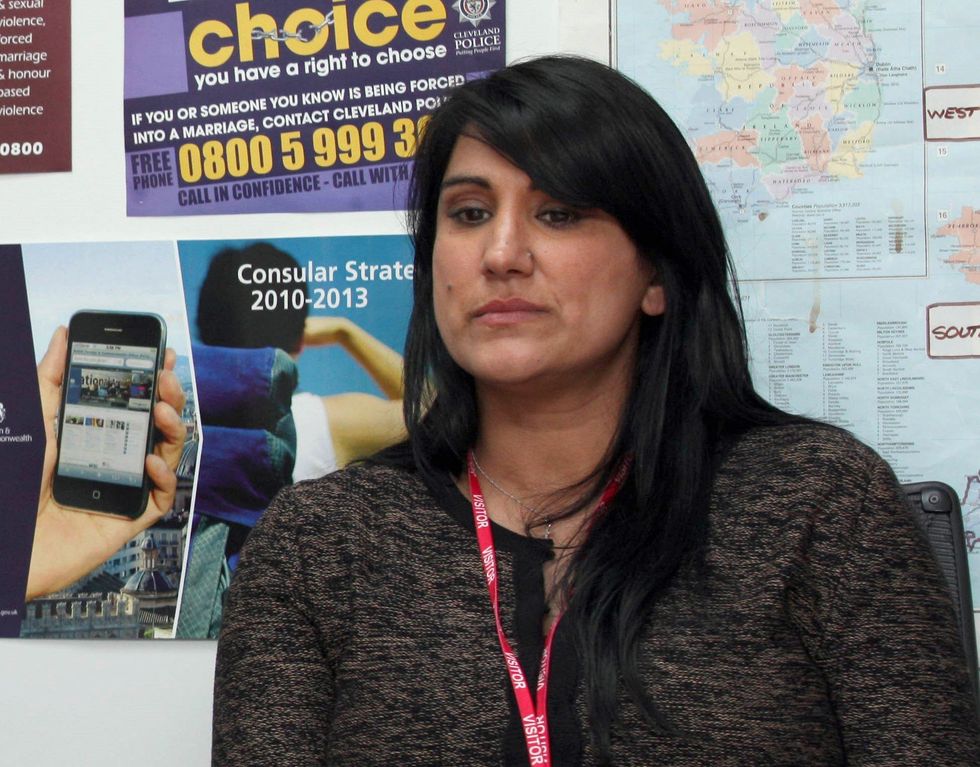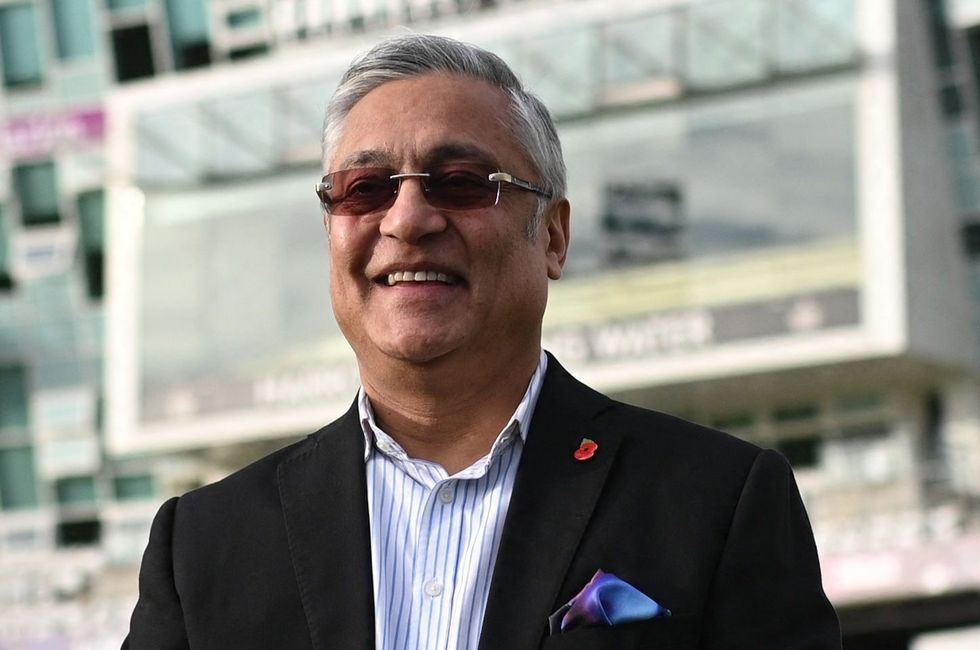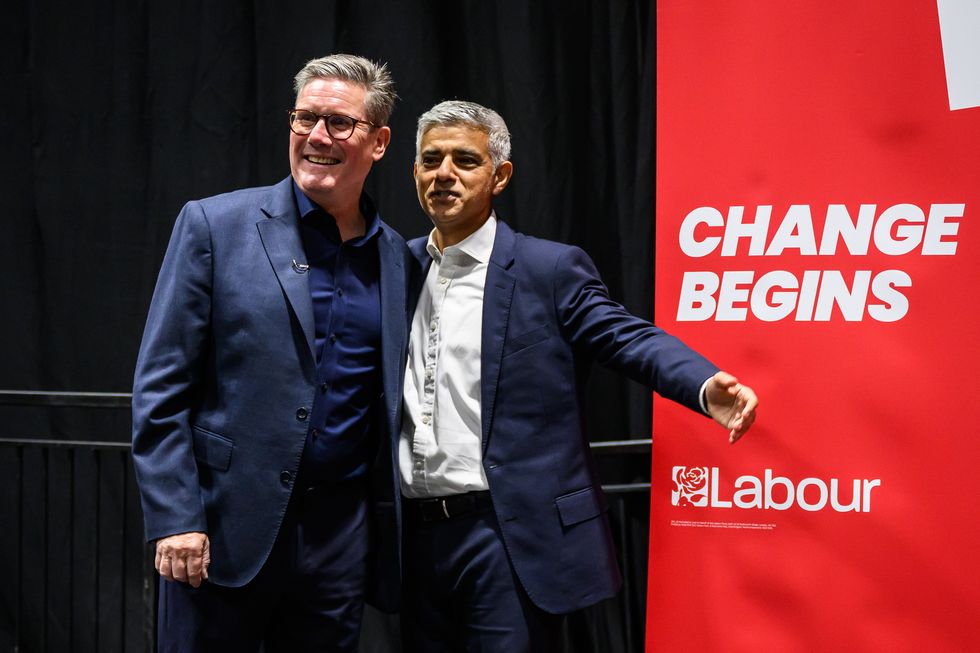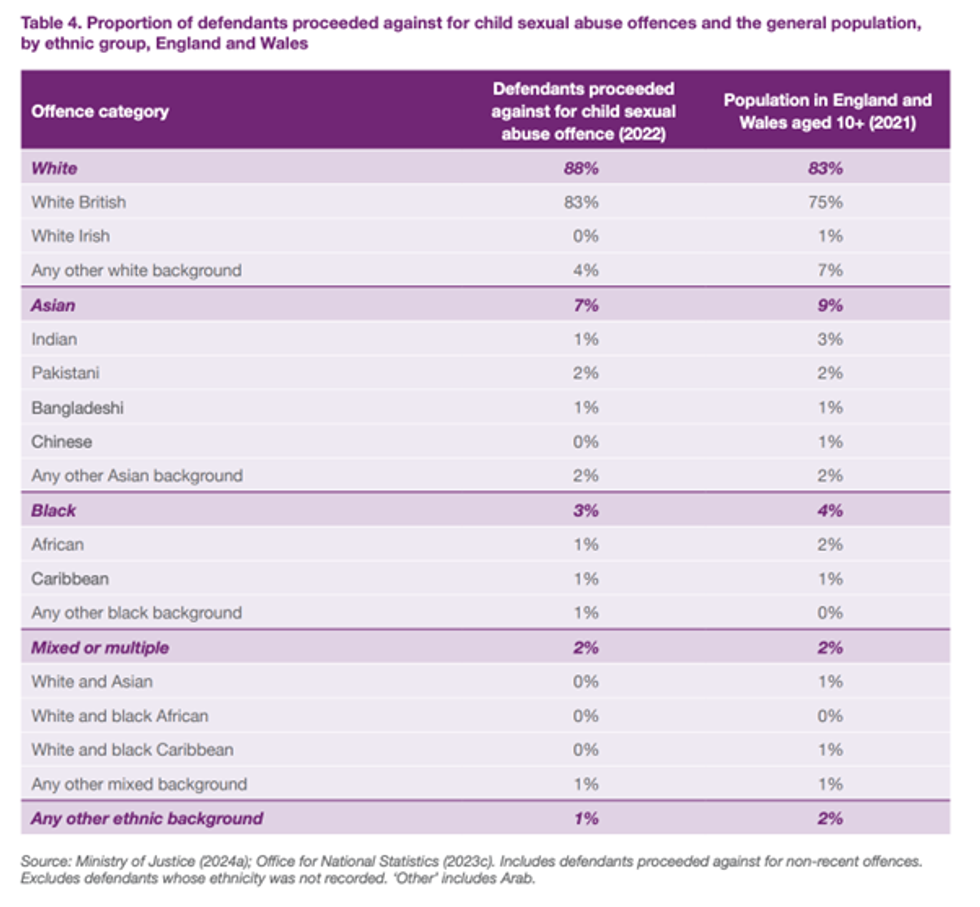POLITICIANS must dial down “dangerous and inflammatory” rhetoric and recognise the contributions of all communities in Britain, prominent south Asians have told Eastern Eye.
They are concerned that recent social media attacks on asylum seekers, immigrants, especially British Pakistanis, as well as ministers will lead to unnecessary deaths.
In the past week, the owner of X, formerly known as Twitter, Elon Musk, used his platform to condemn Home Office minister, Jess Phillips, for refusing to back calls for a government-led inquiry into historical child sexual exploitation.
Former chief prosecutor, Nazir Afzal, told Eastern Eye such attacks could have tragic consequences.
“It is really dangerous to target a community or an individual,” he said.
“I can't think of anybody in parliament that is more attuned to tackling violence, against women and girls, and then for her [Jess Phillips] to be called a rape apologist, it's just absolutely ridiculous, but it also puts a target on her back.
“Jo Cox [former Labour MP] was murdered by somebody that was radicalised into thinking that she somehow represented the worst of British society, by some far-right nut.
“In America, [President Donald] Trump was shot at.
“People need to always have the back of your mind by personalising it, by ignoring the evidence and by simply fuelling fires, you are setting a fire.”
- YouTubeyoutu.be
Lies
The prime minister, Keir Starmer, intervened in the row when he launched his vision for the NHS on Monday (6).
He responded directly to Musk’s posts calling for Phillips to be jailed and branding her a "rape genocide apologist".
“Those who are spreading lies and misinformation as far and as wide as possible are not interested in victims, they're interested in themselves,” said Starmer.
Afzal defended the prime minister’s record when he was director of public prosecutions.
He said Starmer supported him throughout his tenure.
In 2011, they set up specialist prosecutors to convict so-called grooming gangs of Pakistani origin in Rochdale, said Afzal.
“We spoke to chief constables in this country, and they agreed that they ought to be specialist police investigators dealing with sexual abuse of children,” said the former chief prosecutor.
“We wanted to make it very clear, this was our top priority, therefore police should see this as their top priority.
“So, they brought in special investigators.
“We also had to ensure that the courts were on side, so Keir and I went to the judiciary and said, if you have 11 defence barristers, they're all going to ask questions of the victim over and over and over.
“One victim gave evidence for six days, and we said, that's totally unacceptable.
“So, the judges agreed, and they brought in something called ‘ground rules hearings’ as a result of this representation.”
Victims’ voices
What is lost in the noise of social media and political mudslinging, said Afzal, were the victims.
“I've built my career on prosecuting the worst of humanity, at the same time, I've seen the best of humanity,” he continued.
“All those victims who've had the courage to stand up against those in power and those who have abused them.
“And I can tell you that I've got their names in my head, I feel them in my blood, and it's not fair to them.
“They wouldn't want everybody to be harmed, just the person that harmed them.
“They want the person that harmed them to face the consequences of their action.
“They wouldn't want their neighbour or their doctor or their accountant, just because he happens to be the same colour or same race or same faith as their perpetrator, to be held responsible.
“Criminality begins and ends with the criminal.”
Sexual predators
All communities and institutions have child sexual predators, he said. This is shown in the latest child sexual abuse figures published by the Ministry of Justice.
The department recorded the ethnicity of 74 per cent of those prosecuted. Of these, 88 per cent were white and seven per cent were Asian.
Pakistanis made up two per cent, which is the same proportion (two per cent) living in England and Wales.
Church abuse
Last November, Harrods, appointed human rights campaigner, Dame Jasvinder Sanghera, as an “advocate” after allegations of sexual misconduct against its former owner, Mohamed Al Fayed.
Sanghera has a 30-year track record in helping abuse victims and tackling institutions which hide or deny they have problems. The Church of England sacked her when she criticised it for failing sexual abuse survivors.
“We have an institution here that has no accountability whatsoever,” argued Sanghera. “If this were any other organisation, it would be put into special measures.

“It's a charity, it's got hundreds of complaints against it, yet nobody's investigating it, and sure people are being harmed, government need to intervene in this institution.”
National conversation
The veteran campaigner also wants a national conversation about how different communities promote segregation.
“I would like to see a huge shift in terms of how we think about this conversation of integration, how we think about this, them and us, that I was raised in.
“Where we were taught, they're different to us, we don't integrate with them over there.
“What that means in terms of divisive thinking, what that means in terms of those individuals growing up across Britain.
“We need to be thinking about that, because that fuels racism, that fuels [the] Reform [Party].”
- YouTubeyoutu.be
Divisive language
Prominent south Asians told Eastern Eye they are concerned about the divisive and political language which polarises Britain.
“There was a move under the previous government to see the world as divided between us and them,” Enver Solomon, chief executive of the Refugee Council said.
“The people less fortunate than us, who were having to take dangerous journeys to come here, there was rhetoric and language used to portrayed them at times of being as though they were lesser human beings of lesser value, of lesser worth.
“That language of division created tensions in communities that then came to the surface when we saw the shocking far right violence back in the summer of 2024.
“Some of the language of the previous government, words of invasion, spoke to the far right and fuelled tension in communities where it existed.”
He told Eastern Eye things were changing under the new Labour government.
“We need to move away from a language of us and them, to a concept of a shared society, where we don't divide, where we don't differentiate people on the basis of their ethnic background or the basis of where they were born.
“But we recognise that there's a collective humanity, and that our country has a role to play in supporting those who are less fortunate than us, that come here seeking sanctuary, but also celebrating the great success story of British integration.
“The great success story that sees so many mixed marriages, that sees so many people who came from other countries as refugees in all walks of life.”
Immigration row
The independent peer, Lord Patel of Bradford, received racist abuse in the press and social media when he was the chair of Yorkshire County Cricket Club.
The club appointed him in November 2021 to steady the ship after the fallout of the Azeem Rafiq racism scandal.
Patel is co-chancellor of the University of Southampton, a Russel Group institution.
He told Eastern Eye the row over immigration had strayed into higher education.

“The rhetoric has not helped over the past few years from whatever government or party you want to belong to,” said the peer. “There's a whole complex debate about migrant numbers and what this country can and cannot sustain.
“The UN's definition of an immigrant is somebody who's in a foreign country for over 12 months, and of course, university students fit that definition.
“I think it's a really unhelpful definition, and I, for one, don't think students should be counted as immigrants on the stats.
“I think it's a separate issue because, for two or three reasons, one is economic.
“Growth is really important to Britain, and we're not going to grow economically without partnerships across the world.
“Now, one of the institutions that provides serious economic growth in any city, or any region is a university.
“It's a lifeblood of so many regions, and it's a really short sighted to make them feel unwelcome by this rhetoric.”
- YouTubeyoutu.be
India links
Patel also thinks that Britain needs partnerships with countries such as India – and that has positive consequences for immigration.
“If we look at the stark figures, you're talking about 700 million people under the age of 35 in India.
“It gives India a massive demographic dividend that these people can meet its own fairly ambitious objectives, but also, it'll meet many of the world's objectives as well.
“Now that demographic dividend could end up being a real problem if the education and the training, whether it's skills and a high academic achievement, are not met for these people.
“Everybody can benefit from this, and I think it's really important, [because] India's an up-and-coming superpower, and United Kingdom has a fantastic relationship [with] the oldest democracy and the largest democracy working together.
“It meets so many of our objectives in terms of science development, in terms of AI, in terms of newly trained staff, and I think that bond is really important to keep going.”
- YouTubeyoutu.be
Economic concerns
Lord Karan Bilimoria has urged the previous government to stop including international students in its migration figures.
He warns that stopping students bringing in dependants will mean further problems for growth in the UK.
The crossbench peer said he hoped a new administration would make things better – but he has been disappointed so far.
“When I was president of the CBI for two years, I dealt a lot with Keir Starmer and Rachel Reeves, and they are very well intentioned, well meaning, capable individuals,” said the peer.
“They were very clear in saying, we want to be business friendly, we want to support entrepreneurship, we want to grow the economy.
“However, since they've come into office, the measures they've taken, I'm afraid, are anything but enabling growth, in fact, they're all anti-growth measures.
“We as a business community feel very let down, we feel we're not being listened to.”
He told Eastern Eye the new government should study recent history.
“I've said to them time and again, be like Tony Blair and Gordon Brown.
“They were the most business-friendly government I've ever worked with in my three and a half decades in business.
“If you look at what Margaret Thatcher did in transforming this country to a country of entrepreneurship and aspiration and opening up the City of London and opening up the British economy from being a sick man of Europe, since then, you've had all businesses have been pro-entrepreneurship.
“But the most business friendly has been Tony Blair and Gordon Brown, where we had a 40 per cent top rate of income tax until right at the end, when Gordon Brown put it up.
“Eighteen per cent capital gains tax, today it's 24 per cent, and entrepreneurs’ relief of £10 million, it's now £1m.
“They've got a huge majority, a 170-seat majority.
“They could be bold, they could reduce taxes to generate growth, and unfortunately, they're not doing that.
“I just wish and implore them to listen to business, work with business, and together, we can generate the growth and increase in productivity that this country desperately needs.”
The government has maintained that it had no choice to impose a £40 billion tax rise because the previous administration left a £22 billion black hole.
NHS ambitions
Starmer’s big speech on the NHS on Monday (6) showed that health was high on the government’s agenda. He promised more NHS community hubs and greater use of the private sector to help cut hospital waiting lists in England.
Leading mental health advocate, Poppy Jaman, is hopeful about Labour’s direction on tackling the country’s health problems.
But the founder and executive vice chair of MindForward Alliance wants the government to think bigger and realise economic growth and mental health go hand-in-hand.
- YouTubeyoutu.be
“My colleagues in the UK are all working together to actually influence the government and support the government to direct them in the way that we can actually support people that are living with severe mental illness, but also population health,” Jaman explained.
“From a workplace perspective, there is huge opportunity.
“The Department for Business and trade is all about growth, and how do we form international relationships.
“Well, the UK has been leading, some of the biggest companies in the UK, KPMG, PWC, Linklaters, Hogan Lovells, Lloyds Banking Group, Bank of England, these are members of our organisation.
“They've all been evolving their mental health strategy, and they wouldn't have continued doing it if it wasn't having an impact in terms of its culture internally but also profit and returns within the business.
“So, for me, there's a real opportunity here for the Department for Business and Trade and its growth agenda.”
Additional reporting by Sarwar Alam
'Starmer best PM by miles'

Keir Starmer and Sadiq Khan
Relationships between Conservative prime ministers and London’s mayor, Sadiq Khan, were not good, but that looks to be changing, writes Barnie Choudhury.
Speaking exclusively to Eastern Eye, Khan said, “Since Keir became prime minister, no member of the government has slagged off London, and that's very different to the previous five prime ministers I worked with.
“I worked with David Cameron, Theresa May, Boris Johnson, Liz truss, and Rishi Sunak. “This one's the best, by a mile.
“Keir's a politician, because he believes in public service, he believes in giving back, he believes in the power of people achieving more when they work together.”
Khan continues to be trolled on social media and criticised by right-wing UK newspapers.
He still needs round-the-clock security after receiving death threats. The rhetoric could get worse, because in two weeks (20), America will have a new leader, former president, Donald Trump, with whom Khan has clashed in the past.
So, does he expect a repetition of the last time when Trump was in power, and the president attacked him?
“It’s not about me, there’s a much bigger picture.
“The last time Donald Trump was a president, it did lead to the rise of nativist populist movements across the globe.
“Why? Because it normalised mainstream issues that were on the periphery.
“What I don't want is anybody accelerating the rise of nativist populist movements.
“He will be the leader of the free world, it is the largest superpower in the world, and I'm hoping that President Trump this time is different to President Trump last time.
“But my job as the mayor of London is to stand up for our values, stand up for diversity, for human rights, for democracy, for equality.
“And I'm not going to cower to keyboard warriors, or dare I say, the president of the USA.”


 Lord Karan Bilimoria
Lord Karan Bilimoria Poppy Jaman
Poppy Jaman
















